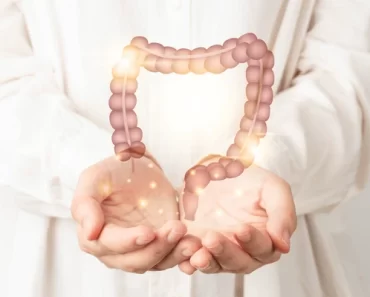In today’s fast-paced world, maintaining regular physical activity is essential for achieving and sustaining optimal health. Exercise is not only crucial for physical fitness, but it also has profound impacts on mental and emotional well-being. This article explores the myriad benefits of regular physical activity and provides insights into how incorporating it into daily life can lead to a healthier, happier existence.
Physical Health Benefits
Weight Management
One of the most recognized benefits of regular physical activity is its role in weight management. Exercise helps burn calories, which is fundamental in preventing obesity and maintaining a healthy weight. Whether it’s through cardio activities like running and cycling or strength training exercises, staying active can help you achieve and maintain your desired weight.
Cardiovascular Health
Regular physical activity is crucial for maintaining a healthy heart. It strengthens the heart muscle, improves blood circulation, and helps lower blood pressure. Engaging in activities like walking, swimming, and aerobics can reduce the risk of heart diseases, including heart attacks and strokes. Exercise also helps maintain healthy cholesterol levels by increasing high-density lipoprotein (HDL) and decreasing low-density lipoprotein (LDL).
Muscle and Bone Strength
Exercise is vital for building and maintaining strong muscles and bones. Weight-bearing activities such as weightlifting, hiking, and even dancing stimulate bone growth and strength. Regular physical activity can prevent osteoporosis, a condition characterized by weak and brittle bones, and can also enhance muscle mass and strength, which is particularly important as we age.
Enhanced Immune Function
Physical activity can boost the immune system, making the body more efficient at warding off infections and illnesses. Moderate exercise has been shown to enhance the circulation of immune cells, helping the body detect and fight pathogens more effectively.

Mental Health Benefits
Stress Reduction
Exercise is a powerful tool for managing stress. Physical activity increases the production of endorphins, which are natural mood lifters. Activities such as yoga, tai chi, and even a simple walk in the park can significantly reduce stress levels, promote relaxation, and improve overall mood.
Improved Mood and Mental Health
Regular exercise is known to combat anxiety and depression. It stimulates the release of chemicals like dopamine and serotonin, which are critical for mood regulation. People who engage in regular physical activity often report feeling happier and more satisfied with their lives.
Cognitive Function
Physical activity has positive effects on brain health. It improves cognitive function, enhances memory, and promotes faster learning. Exercise increases blood flow to the brain and supports the growth of new neural connections, which can help protect against cognitive decline as we age.
Long-term Health Benefits
Reduced Risk of Chronic Diseases
Engaging in regular physical activity reduces the risk of developing chronic diseases such as type 2 diabetes, certain types of cancer, and metabolic syndrome. Exercise helps regulate blood sugar levels and improves insulin sensitivity, which is crucial for diabetes prevention and management.
Increased Longevity
Studies have consistently shown that regular physical activity is associated with increased life expectancy. People who exercise regularly tend to live longer and enjoy a better quality of life. Exercise helps maintain vital body functions and prevents many age-related diseases, contributing to a longer, healthier life.
Social and Emotional Benefits
Social Interaction
Many physical activities can be social, whether it’s playing a team sport, joining a fitness class, or simply walking with a friend. These social interactions can enhance mood, provide a sense of community, and reduce feelings of loneliness and isolation.
Boosted Self-esteem
Achieving fitness goals, whether big or small, can significantly boost self-esteem and confidence. Regular physical activity can improve body image, enhance personal satisfaction, and provide a sense of accomplishment.
Practical Tips for Incorporating Physical Activity
Start Small: If you’re new to exercise, start with small, manageable goals. Even a 10-minute walk each day can make a difference.
Find Activities You Enjoy: Exercise doesn’t have to be a chore. Find activities that you enjoy, whether it’s dancing, swimming, hiking, or playing a sport.
Make It a Habit: Schedule physical activity into your daily routine. Consistency is key to reaping the benefits of exercise.
Mix It Up: Incorporate a variety of activities to keep things interesting and work different muscle groups. Include a mix of cardio, strength training, and flexibility exercises.
Stay Safe: Ensure you’re exercising safely by using proper techniques and equipment. If you have any health concerns, consult with a healthcare provider before starting a new exercise regimen.
Regular physical activity is a cornerstone of a healthy lifestyle. Its benefits extend beyond physical health, impacting mental, emotional, and social well-being. By making exercise a regular part of your life, you can improve your overall health, reduce the risk of chronic diseases, and enhance your quality of life. Start small, stay consistent, and find joy in the activities you choose. Your body and mind will thank you for it.






